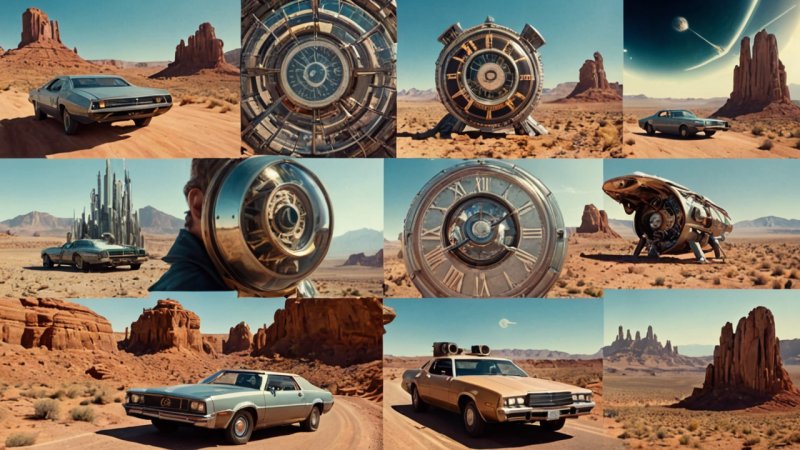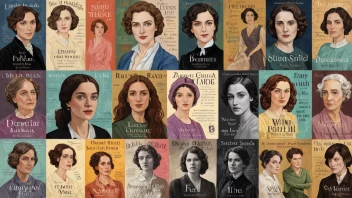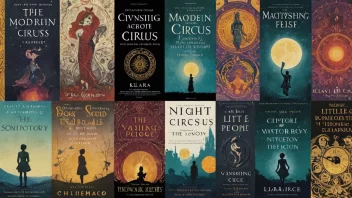Time travel has long fascinated humanity, serving as a bridge between our understanding of the universe and our imaginations. From H.G. Wells' seminal work, "The Time Machine," to modern cinematic masterpieces like "Interstellar," science fiction has a unique ability to explore the complexities of time, destiny, and the human experience. In literature, time travel not only serves as a narrative device but also as a catalyst for philosophical questions about existence, morality, and the nature of reality. This article delves into how various science fiction works have tackled the concept of time travel, examining its implications and the rich narratives that unfold when characters traverse the boundaries of time.
The Evolution of Time Travel in Literature
The concept of time travel has evolved significantly since its early representations. Initially, time travel was depicted in a linear fashion, where characters moved forward or backward along a single timeline. Early works focused on the adventure and curiosity associated with time travel, often highlighting the excitement of visiting different eras. However, as the genre matured, authors began to embrace more complex interpretations of time, integrating science, philosophy, and even emotional depth into their narratives.
Classic Examples of Time Travel
In the late 19th and early 20th centuries, authors like H.G. Wells and Mark Twain laid the groundwork for time travel narratives. Wells' "The Time Machine" introduced readers to the idea of a time machine that allowed its operator to experience different epochs. The novel raised questions about social evolution, technology, and the consequences of human actions over time. Twain's "A Connecticut Yankee in King Arthur's Court" presented a humorous yet critical exploration of the clash between modernity and the past, ultimately questioning the romanticism often associated with historical eras.
Contemporary Interpretations and Philosophical Underpinnings
As science fiction evolved into the modern age, authors began to incorporate more intricate theories of time into their stories. Works like Kurt Vonnegut's "Slaughterhouse-Five" utilized time travel as a narrative device to explore trauma and the nonlinear nature of existence. Vonnegut's protagonist, Billy Pilgrim, experiences events out of order, highlighting the fragility of time and memory. Similarly, in Audrey Niffenegger's "The Time Traveler's Wife," time travel serves as a poignant metaphor for the challenges of love and loss, emphasizing the emotional stakes involved in navigating time.
Scientific Theories and Their Impact on Fiction
The burgeoning field of theoretical physics has offered science fiction writers a plethora of concepts to explore in their narratives. Theories such as wormholes, parallel universes, and the multiverse have provided fertile ground for imaginative storytelling. Authors like Greg Egan and Charles Stross have incorporated quantum mechanics and relativity into their works, pushing the boundaries of traditional time travel tropes.
The Role of Technology in Time Travel Narratives
Technology has always played a central role in the portrayal of time travel. The devices used to traverse time often reflect the societal values and technological advancements of the era in which the stories were written. For instance, the DeLorean in "Back to the Future" symbolizes the 1980s' fascination with cars and consumerism, while the TARDIS from "Doctor Who" represents the infinite possibilities of exploration beyond conventional travel. These devices serve not only as plot devices but also as cultural artifacts that encapsulate the zeitgeist of their respective periods.
Time Travel and its Impact on Character Development
Time travel often provides a unique lens through which to examine character development. The ability to revisit past decisions or foresee future consequences allows characters to experience growth in ways that conventional narratives cannot achieve. In "11/22/63," Stephen King explores how a time traveler grapples with the morality of altering history, forcing him to confront his own values and desires. This introspective journey highlights the profound impact that time travel can have on an individual's psyche, as they grapple with the weight of their choices across timelines.
Societal Reflections Through Time Travel
Science fiction often serves as a reflection of societal fears, aspirations, and ethical dilemmas. Time travel narratives enable authors to critique contemporary issues by placing them in historical or future contexts. For example, in the "Time Traveler's Wife," the unpredictability of time travel mirrors the unpredictability of life itself, addressing themes of love, commitment, and the unpredictability of relationships. By juxtaposing different time periods, authors can comment on social change and the human condition.
The Future of Time Travel in Science Fiction
As technology continues to evolve and our understanding of the universe expands, the portrayal of time travel in literature and film will likely also transform. Emerging trends may include more nuanced explorations of time as a construct, integrating advancements in neuroscience and quantum physics into storytelling. Additionally, as diverse voices in literature continue to rise, we may see fresh perspectives on time travel that challenge traditional narratives and broaden the genre's scope.
In conclusion, time travel remains one of the most compelling and complex themes in science fiction literature. It allows authors to explore not just the mechanics of time, but the deeper philosophical questions that resonate with the human experience. From classic tales that laid the groundwork for the genre to contemporary narratives that challenge our understanding of reality, science fiction continues to push the boundaries of what is possible. As we look to the future, we can only imagine the new and innovative ways that time travel will be portrayed, continuing to inspire wonder and reflection in readers around the world.






